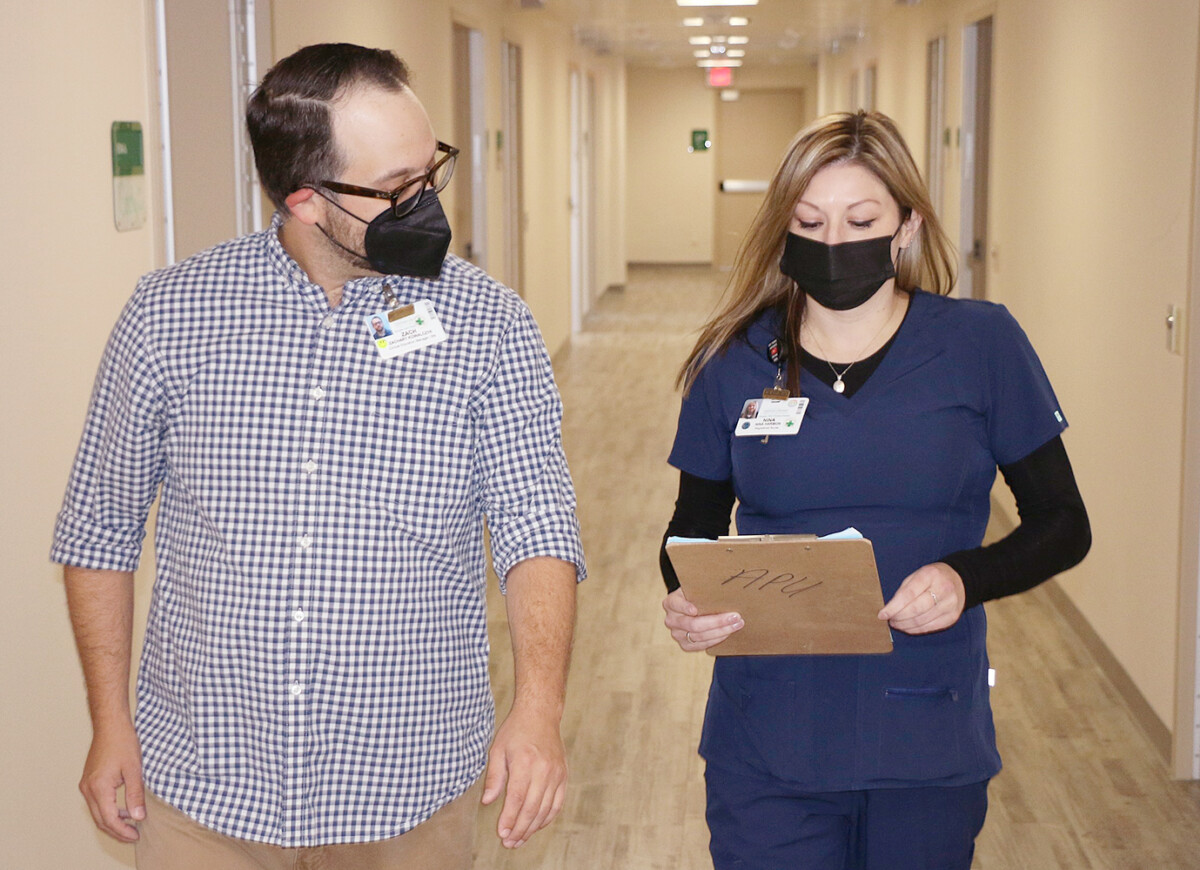‘They’re Cared For, Even When They Leave Us’

“Just the walking space alone is such a big deal,” says Karen Disogra, LPN, as she describes one of the many benefits of the new 19,000-square-foot Adult Inpatient Psychiatry Unit at The University of Vermont Health Network – Champlain Valley Physicians Hospital. The new inpatient unit, which is nearly triple the size of the previous space, has wide hallways for walking – which is important because “pacing is a common coping skill for a lot of our patients,” she explains. The space will enable the treatment of the same amount of patients as the previous unit, now with activity and group therapy spaces, as well as comfort and exercise rooms.
“Our patients and staff are able to utilize tools that we didn’t have before to offer coping mechanisms,” according to Disogra, who has been caring for adult psychiatric patients for 15 years. “You can see how much it is helping every day.”
Everything on the unit – from security to bedding to the color of the furniture – was carefully considered to promote safety and patient wellbeing. But it’s the new approach to care that is transformative.
The space is certainly important. But there has also been this transformation of recovery and what this means for how we take care of the patients in the best way we can. You can really see it when you open the doors.
Rheta Recore, LMHC, Regional Psychiatry Transitional Care Program Manager at Champlain Valley Physicians Hospital
A key addition is the Medical Village, a dedicated space that opens up access to critical services provided by the hospital’s community partners like the Champlain Valley Family Center (CVFC), The National Alliance on Mental Illness of Champlain Valley (NAMI) and Behavioral Health Services North (BHSN) to name a few. Recore’s goal is to have as much community involvement as possible, with the Medical Village providing opportunities for groups to see patients and provide services more quickly and easily than ever.
Physicians and community partners who provide services to the patients are already seeing the impact the new unit is having on patient recovery. “I met with a patient who I originally saw on the old unit,” says Dennis King, a peer provider with the CVFC, which provides substance abuse treatment, prevention and education for patients and their families. “Yesterday, we met in a nice room, quiet and secluded. She’s kind of shy and inward normally, but this time, she opened up a lot more. It was very enlightening to see her talk on a different level than when I saw her three months ago,” King says.
The continuity of care from inpatient to community treatment is pivotal, according to Recore. “When a patient is able to meet with Dennis a few times while they’re with us, and then be able to see him as an outpatient, it makes that transition of care much more streamlined, safe and comfortable for that individual,” says Recore. “And the likelihood that person will follow through with treatment afterward is high.”
We want them to know that they will be cared for, even after they leave us.
Beyond the many physical benefits of the new facility and Medical Village, Disogra notes that the unspoken message sent to patients, staff and the community may be just as important.
“With all of the upgrades, the thought put into everything and the large amount of money spent, it shows just how committed the hospital is to mental health,” she says. “It makes our patients feel valued. Their well-being matters to so many people here and in the community.”
